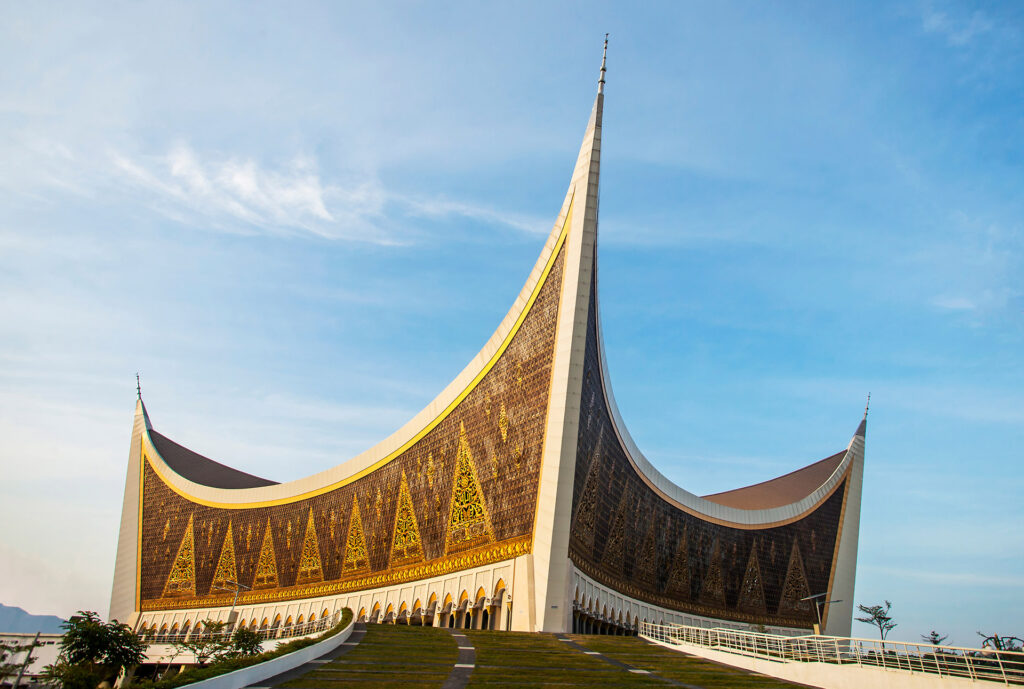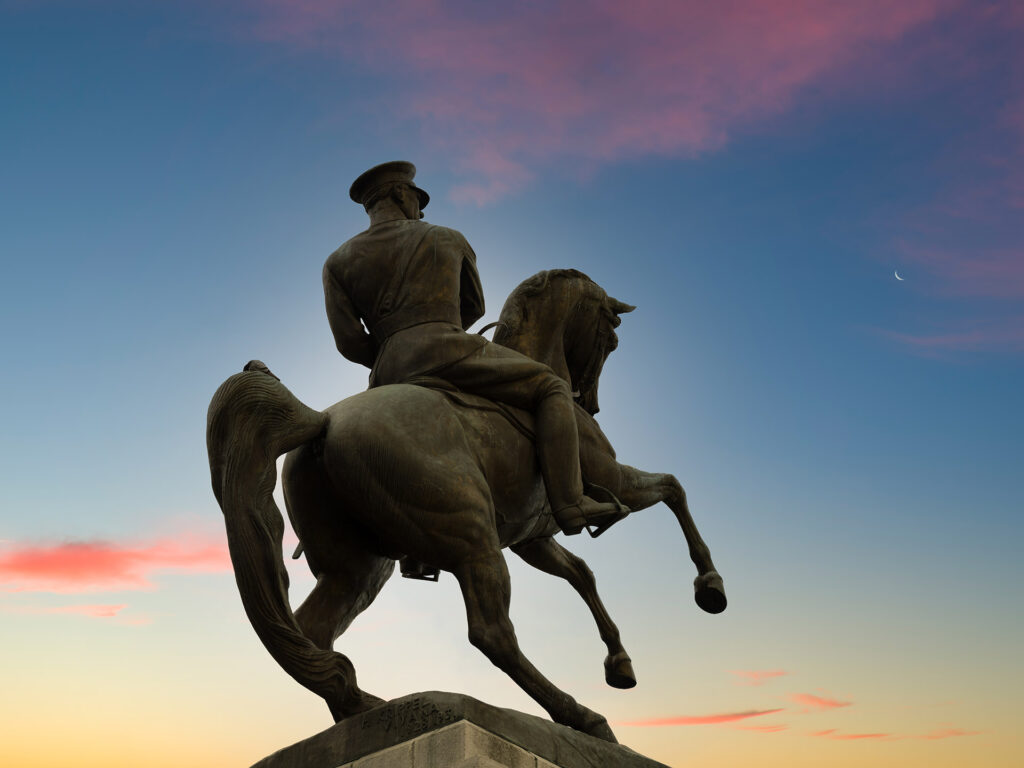Born in 1954, Recep Tayyip Erdoğan rose to the political main stage from a relatively humble background. He came into the limelight in the early 1990s as part of the Islamist Welfare Party and was elected as mayor of Istanbul, Turkey’s largest city, in 1994. Following a military coup in 1997, he was convicted and sentenced to prison for reading a politically charged poem.
A disruptive, charismatic candidate
After serving a four-month sentence, Erdoğan presented himself as a leader who could successfully reconcile Islam with democracy. He founded the Justice and Development Party (AKP) in 2001 and led them to victory in the 2002 general election. Since he was ineligible to stand for elections in 2002 due to his conviction, he would have to wait to become prime minister in 2003.
The rise of the AKP was welcomed by the Turkish population, and the West viewed the progress in Turkey with optimism. As the Prime Minister, Erdoğan led the Turkish economy to be the 18th largest in the world. Erdoğan dismissed apprehensions of any anti-Western advances and pushed Turkey’s bid to join the European Union. He bolstered relations with the US and stated his intent to resolve the country’s territorial dispute with Cyprus.
While Erdoğan was seen as a leader who could peacefully merge Islam and democracy, he gradually displayed a more Islamist and authoritarian side. AKP clashed with secular parties in 2007 when attempts to elect an AKP presidential candidate with an openly Islamic ideology were blocked. In 2010, the Erdoğan administration lifted the ban on the wearing of headscarves on university campuses. This was an early warning sign of a crackdown on Turkish democracy and secularism. Following this, Erdoğan’s position started to come under scrutiny, and a constitutional court began hearing a case that called for dismantling the AKP and banning Erdoğan and other members. The AKP survived the case, and it subsequently passed constitutional legislation that brought the military under greater control from civilian courts while simultaneously increasing the parliament’s power to appoint judges.
From democratic leader to modern sultan
Erdoğan had risen to power in 2002 as a messianic figure for Muslims in Turkey who felt repressed by the secular order. While his initial policies did not have an Islamic leaning, by 2011, Erdoğan was referring to the AKP election win as a victory for Turkey’s Ottoman heritage. In the summer of 2013, the government violently cracked down on a peaceful protest in Istanbul against an urban development plan. This was a decisive turning point, signifying the start of Erdoğan’s authoritarian rule. The incident triggered widespread protests against the government and raised concerns over the government’s interference in citizens’ lives. Further, Erdoğan took the incident as an opportunity to jettison several liberal AKP members, including then-President Abdullah Gül, who was denied the possibility to return to the party ranks after his presidential term ended.
Erdoğan subsequently took over as the first directly elected president, something made possible by a 2007 constitutional referendum. Turkey until this point had used a parliamentary system of democracy, where the head of state was elected by the legislature and held a ceremonial position. Erdoğan appointed former foreign minister Ahmet Davutoğlu as the prime minister, but later dismissed him due to his reluctance to support his ambitions to end the parliamentary system. Erdoğan replaced him with Binali Yıldırım, who was prepared to facilitate the constitutional amendments required to transform the political system into that of a presidential republic.
Erdoğan used the attempted military coup against him in 2016 to gain public support for a crackdown on his opponents. Erdoğan’s attack on Turkish democracy reached its apotheosis when the Turkish citizens voted on a constitutional amendment that officially transformed Turkey from a parliamentary democracy into a presidential one. Erdoğan became the first president under the new system in July 2018.
Party and presidential control erode Turkish institutions
This change in the system is worrying. The new constitution strengthens the powers of the president by granting him the power to issue presidential decrees to ensure the implementation of the law. Additionally, the president can issue a state of emergency. The president is no longer constitutionally required to remain politically neutral and can retain ties to his political party. Since the new constitution also grants the president the power to appoint and dismiss high-level public executives, including the vice president and cabinet ministers, this allows him to fill important places with members of his own political party.
The new constitution massively undermines the Grand National Assembly, Turkey’s unicameral parliament. If the president’s party controls the majority of seats in the Assembly, the president can control parliament and its agenda, rendering the governmental checks and balances redundant.
The government has also brought universities under direct control and ended the traditional right of state universities to appoint their own rectors, thus curbing academic freedom. The military has been severely weakened due to the post-coup crackdown by the government. Further, the government has exercised more direct control of the central bank. The previously improving Turkish economy has plummeted, and the Turkish lira has steadily lost value in recent years.
Turkey’s assertive stance puts NATO ties in question
In foreign policy, Turkey has sought to establish itself as a regional power and has recently even played a prominent role in mediating between Russia and Ukraine. The country, historically close to the West, has been at odds with it recently due to its increasing ties with Russia and its autocratic turn. Currently, Turkey’s future in NATO and EU membership seems uncertain as long as Erdoğan stays in power.
The election last month was arguably the most difficult test Erdoğan has ever faced. With the collapsing economy and the devastating impact of the recent earthquakes, Erdoğan’s position looked under scrutiny in the opinion polls before the election. However, Erdoğan managed to emerge as the winner, defeating the candidate of the united opposition, Kemal Kılıçdaroğlu.
Kılıçdaroğlu had portrayed this election as a fight for democracy and promised to restore the parliamentary system of democracy. This election was the most important one for Erdoğan, as it was a test of his new political system.
Turkey’s political landscape has shifted dramatically since Recep Tayyip Erdoğan assumed power in 2003. The political structure of the country has changed, and the AKP has launched a systematic attack on the country’s secular order. Erdoğan’s reinvigoration by this electoral victory may result in further erosion of Turkish democracy and of its relations with the West. All eyes are now set on Ankara as Erdoğan’s march towards regional power status and authoritarianism continues.
[Anton Schauble edited this piece.]
The views expressed in this article are the author’s own and do not necessarily reflect Fair Observer’s editorial policy.
The post With Erdoğan’s Victory, Turkey’s Startling Slide Into Authoritarianism Continues appeared first on Fair Observer.
from World News - Independent, Nonprofit Media https://ift.tt/mQqY6ab https://ift.tt/ItWjbyl






0 Comments
Online Latest Bangla News, Article - Sports, Crime, Entertainment, Business, Politics, Education, Opinion, Lifestyle, Photo, Video, Travel, National, World.
Emoji